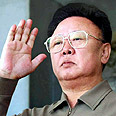
American pragmatism
Is American change of direction on North Korea a sign of things to come?
Part 2: North Korea
At the beginning of October 2006, North Korea carried out a nuclear test. This was perceived as an act of defiance against the entire world, and particularly the United States. Within six days, US Secretary of State Condoleezza Rice succeeded in spearheading a unanimous decision by the UN Security Council to impose a series of harsh sanctions on North Korea, including significant international economic sanctions.
According to clause 311 of the "Patriot Act," legislated following the 9/11 terror attacks, the American Treasury has the authority to decide that a financial institution is "primarily a business for money laundering." From the moment such a decision is taken, ties between the institution and the American financial system are severed. Since we are all part of the global village, such severance of ties is tantamount to estrangement from the entire world economy.
Within a short time several banks in South-East Asia were added to this category, and they in turn acted swiftly by freezing their activities with North Korea. The embargo quickly made an impact and North Korea indicated its willingness to engage in talks over its nuclear program.
In the 1990s North Korea conducted what was perceived by the Americans as a deceitful act; it didn't suspend its nuclear activities as stipulated in the agreement signed with the Clinton Administration. In light of this, the United States refused to engage in direct one-on-one talks and preferred six-way talks with the US, Russia, Japan, China, North Korea and South Korea. All North Korea's demands for direct talks were rejected, and President Bush even announced that it was one of the states comprising the "axis of evil" (Iraq, Iran and North-Korea.)
Bush's pragmatic approach
Despite this, alongside the signs coming from North Korea, the US entered a round of intensive talks, both within the "six" framework as well as in face-to-face talks in Berlin during the critical phases. The new pragmatic approach taken by the American Administration impacted additional aspects of the North Korean issue: The administration agreed on reaching a preliminary agreement with the Koreans, rather than striving for a broader and comprehensive agreement. No longer a broad vision, but rather, an agreement limited in scope, designed to serve as an opening for further moves.
The Administration agreed to commence the process of taking North Korea off the list of terror-sponsoring countries without preconditions, with North Korea announcing abandonment of terror.
This aspect sparked the ire of Elliott Abrams, the deputy national security advisor, who according to American press reports slammed his colleagues for relinquishing this principle. Abram's rage, as well as former ambassador to the UN John Bolton's public reservations on the matter, had no effect on President Bush, who is continuing with his pragmatic policies led by the secretary of state.
North Korea wasn't asked to "recognize" South Korea, just as the south doesn't "recognize" the North. Does this change of direction herald additional American changes of direction in the arena of international conflict?
Ephraim Halevy is a former Mossad chief. Read part 3 tomorrow on Ynetnews










